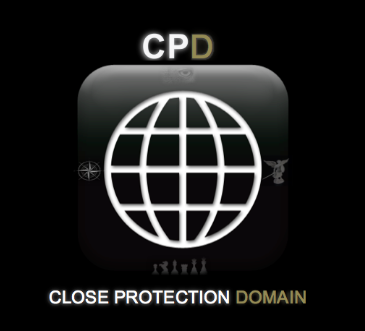Passwords: Soon to Be Replaced by Eye Movement Tracking
Page 1 of 1
 Passwords: Soon to Be Replaced by Eye Movement Tracking
Passwords: Soon to Be Replaced by Eye Movement Tracking
I hate it! I’m always finding out that, while I think that I remember the password into this or that account, I am wrong again. Frustratingly, it is usually due to something as simple as a missed capital letter or a single digit somewhere. But remember the rule: you aren’t supposed to write passwords down anywhere. Don’t write them down? You have got to be kidding. Add to that: Don’t use your name. Don’t use your birthday. Don’t use anything that you might easily remember. Heck, if I don’t write them down, how am I supposed to remember the 100 different passwords that I am supposed to maintain in order to meet everyone’s specific requirements?
At one time, it wasn’t quite such a pain. Back then, it was just a small annoyance that we coped with when first needed to log on to the servers of our ISP to collect our email messages or surf the Internet. Then, too, if you were one of the first explorers of the Internet, you may recall that the passwords we used were fairly primitive. At that juncture in our adventure, the biggest challenge was having to add a number or a capital letter to the password. However, while this all appeared good, and made sense because it was the ISP’s way of lending an extra layer of security to protect customers, in actuality it provided little protection against hackers who just saw it as another challenge.
As time passed, however, this small inconvenience mushroomed, and then snowballed, resulting in our frustration mounting as more and more Internet sites opened and required us to add different, often confusing, passwords to access our accounts. At first, many Internet users found that the simplest way for them to address this problem was to use the same password for every site they visited on the Internet. However, banking institutions started to increase the requirements for the passwords one could use from a simple, easy-to-remember word or phrase to one that included not only capital letters or numbers, but also symbols.
For most of us, this was difficult enough, but even this has evolved into nothing short of a night terror because some institutions are now requiring that passwords be changed at specified times. Of course, this isn’t at the end of the month so that all passwords can be changed at the same time; no, it is at a time determined by the institution one is trying to access. In other words, there is no way to remember all of this if one doesn’t write it down.
In truth, though, I must agree to why passwords need to be frequently changed. I know that it is done to protect the security of our accounts; however, unless one has the memory of an elephant, we are struggling to remember all of the various passwords we need to access accounts from banks, to Amazon, to phony Phils.
To avoid hackers delving into their accounts, people in India and many other countries have — for years — been using iris scanners. However, new technology developed by Indian researchers began with their discovery of how the iris functions when one views a picture or an image. Researchers found that the iris, in a way, is like a person’s fingerprint in that eye movement is unique, which makes it the perfect tool for adding another level of security or protection for electronic devices. This means that, instead of trying to remember a kabillion different passwords, you would be able to scan your eye and add this safety feature to your smartphone, tablet, or computer connection.
Unfortunately, while iris scanners themselves have been around for any number of years, it seems that crooks have already managed to hold up a high quality image of a person’s eyeball and have it successfully fool the scanning device. However, once iris scanning is coupled with this new tracking movement technology — which is still in its testing phase — it is hoped that it will become more difficult if not impossible to fool the software. In fact, researchers are so excited about the possibilities of this new technology that the Indian government wants to establish a unique eye identification strategy for everyone who resides in India. This is an ambitious project and it should be interesting to see if the Indian government can pull this off.
So stay tuned. While it is still not ready for its primetime premiere, iris scanning movement tracking technology may cut you free from the bonds of those passwords you hate as they may soon become as extinct as a tyrannosaurus rex.
At one time, it wasn’t quite such a pain. Back then, it was just a small annoyance that we coped with when first needed to log on to the servers of our ISP to collect our email messages or surf the Internet. Then, too, if you were one of the first explorers of the Internet, you may recall that the passwords we used were fairly primitive. At that juncture in our adventure, the biggest challenge was having to add a number or a capital letter to the password. However, while this all appeared good, and made sense because it was the ISP’s way of lending an extra layer of security to protect customers, in actuality it provided little protection against hackers who just saw it as another challenge.
As time passed, however, this small inconvenience mushroomed, and then snowballed, resulting in our frustration mounting as more and more Internet sites opened and required us to add different, often confusing, passwords to access our accounts. At first, many Internet users found that the simplest way for them to address this problem was to use the same password for every site they visited on the Internet. However, banking institutions started to increase the requirements for the passwords one could use from a simple, easy-to-remember word or phrase to one that included not only capital letters or numbers, but also symbols.
For most of us, this was difficult enough, but even this has evolved into nothing short of a night terror because some institutions are now requiring that passwords be changed at specified times. Of course, this isn’t at the end of the month so that all passwords can be changed at the same time; no, it is at a time determined by the institution one is trying to access. In other words, there is no way to remember all of this if one doesn’t write it down.
In truth, though, I must agree to why passwords need to be frequently changed. I know that it is done to protect the security of our accounts; however, unless one has the memory of an elephant, we are struggling to remember all of the various passwords we need to access accounts from banks, to Amazon, to phony Phils.
To avoid hackers delving into their accounts, people in India and many other countries have — for years — been using iris scanners. However, new technology developed by Indian researchers began with their discovery of how the iris functions when one views a picture or an image. Researchers found that the iris, in a way, is like a person’s fingerprint in that eye movement is unique, which makes it the perfect tool for adding another level of security or protection for electronic devices. This means that, instead of trying to remember a kabillion different passwords, you would be able to scan your eye and add this safety feature to your smartphone, tablet, or computer connection.
Unfortunately, while iris scanners themselves have been around for any number of years, it seems that crooks have already managed to hold up a high quality image of a person’s eyeball and have it successfully fool the scanning device. However, once iris scanning is coupled with this new tracking movement technology — which is still in its testing phase — it is hoped that it will become more difficult if not impossible to fool the software. In fact, researchers are so excited about the possibilities of this new technology that the Indian government wants to establish a unique eye identification strategy for everyone who resides in India. This is an ambitious project and it should be interesting to see if the Indian government can pull this off.
So stay tuned. While it is still not ready for its primetime premiere, iris scanning movement tracking technology may cut you free from the bonds of those passwords you hate as they may soon become as extinct as a tyrannosaurus rex.
 Similar topics
Similar topics» Facial recognition and GPS tracking: TrapWire company conducting even more surveillance
» Anti Surveillance Hoodie and scarf to prevent drones tracking you
» Ugandan Rebel Movement Reemerges Along the Oil-Bearing Ugandan/Congolese Border
» Anti Surveillance Hoodie and scarf to prevent drones tracking you
» Ugandan Rebel Movement Reemerges Along the Oil-Bearing Ugandan/Congolese Border
Page 1 of 1
Permissions in this forum:
You cannot reply to topics in this forum
 Home
Home Register
Register Log in
Log in




» OSINT's books
» Hire Bodyguard in London
» Contact for work
» Updated CV
» Introduction
» Intersec 2017
» HLR/D-HLR Instructor Sweden
» CP SIA, MIRA Quaified